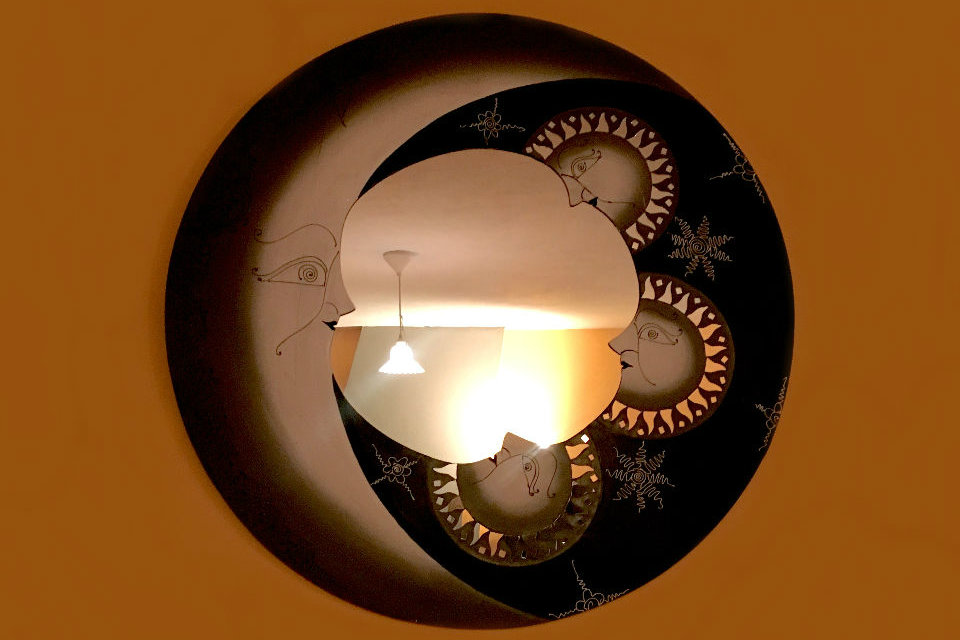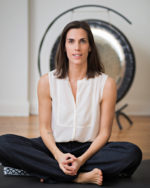Dr. Carl W. Bazil, MD, PhD
On some of the most common but also critical lifelong concerns about sleep.
Global cultural attitudes towards sleep haven’t quite caught up to medical research and innovation. Three years ago at an NYPR conference on sleep health, Dr. Carl W. Bazil’s insightful dialogue stressed this very issue.
At the Columbia University Medical Center, Dr. Bazil is director of the Comprehensive Epilepsy Center and the Division of Epilepsy and Sleep in the Department of Neurology. With an undergraduate degree from MIT, he completed an MD/Ph.D program at Emory University before pursuing a fellowship in Epilepsy/EEG at the Neurological Institute of New York. He concluded his medical education as chief resident in Neurology at New York University.
With such stellar training in his life’s passion, Dr. Bazil developed a very humanistic, personal approach to addressing his patients’ concerns; he celebrates the unique rhythms by which each individual ebbs and flows into his or her own slumber. In his practice, he offers a series of techniques that can help everyone listen more carefully to their own bodies.
BWB had the opportunity to speak with Dr. Bazil about some of the most common and critical sleep concerns.
What advice would you give on combatting the effects of jet lag to get the best sleep while traveling?
That is a rather complicated subject, but the best advice in general is working with your body clock. As most people know, everyone has an internal clock that will continue to operate independent of where you go. For example, if you travel five time zones, your internal clock remains from where you started. You can learn to control your internal clock by using the things that help set it: light and melatonin.
You also want to keep your schedule as much as you can in the new time zone. You’ve got to keep convincing your body of the clock you want to be on. That means sticking with mealtimes, not taking extensive naps during the day, those sorts of things.
Melatonin is a natural hormone that signals to your body when it is your clock’s bedtime. So, one way to help the jet lag process is to take melatonin as a supplement at the time you want your “clock” to think it’s bedtime. It will help to speed the process. On the other hand, light is the signal to your body that it’s daytime. So even if, at 8 o’clock in the morning, your body thinks it’s still 3 o’ clock in the morning, getting outside, external light helps to convince your body it is actually daytime. That’s probably the simplest approach.
You also want to keep your schedule as much as you can in the new time zone. You’ve got to keep convincing your body of the clock you want to be on. Make an effort to stick with mealtimes and avoid taking naps during the day.
Depending on age, what are some foods/drinks you might recommend consuming (before bed) to promote or support healthy sleep function?
We generally suggest that you don’t have heavy meals before you go to bed, as it can keep you up. But you also don’t want to go to bed hungry – that’s sort of a general rule. More specifically, you actually want to avoid alcohol before you sleep. It might feel like a drink at that time helps to relax you and a little bit might be okay; but as alcohol clears your system, it tends to wake you up during the night. Carbohydrates, milk, and turkey are foods that I recommend since they tend to increase levels of tryptophan. So, if you want to tip along those lines, that’s probably the way to go.
Do you recommend any holistic supplements? You mentioned melatonin before.
Taking a low dose of melatonin may help keep your clock from getting off. Other than that, there’s not a lot of strong evidence for other supplements. Things like valerian are sometimes recommended for sleep. There’s no harm in trying them; they might help.
We know that screens can have a very negative impact on the quality of our sleep but are there any ways that you would recommend one may use technology to help support sleep?
One thing we know in particular is that blue light frequencies can delay melatonin. As I’ve mentioned, if you want to convince your body it’s daytime, you expose yourself to bright light. The negative part of that is if you expose yourself to that when it’s supposed to be bedtime, you put off the melatonin. Many phones and computers have settings now that will dim the blue light component. Some people also find it easier just to use “blue-blocking” glasses. You can get these online for a cheap price.
It’s not just the light, but you also want to avoid getting too involved in work, social media, or whatever you’re doing when you’re supposed to winding down and getting ready for sleep.
Any remedies for nighttime restlessness?
It’s not a rule that you cannot look at screens – you’ve got to pay attention to what is waking you up and what is actually bothering you.
When you talk about things that will calm your brain, you have to remember that it’s individualized. Reading is relaxing to many people, but it’s certainly possible you start reading a disturbing biography, or a very engaging novel that can be activating too. So you have to be careful what you read. I’ve heard people say that it’s very relaxing for them to look at certain types of videos when it’s time for bed. So it’s not a rule that you cannot look at screens – you’ve got to pay attention to what is waking you up and what is actually bothering you.
One of the unusual things that people recommend before bed – and I think this is used a lot in Britain – is coloring books. And it sounds a little wacky. But it might work, because you’re less likely to become engaged in activity most adults don’t do. It can turn your brain off. So if nothing else is working, you might try it.
What are some of the best ways or strategies to incorporate healthy sleeping habits into one’s lifestyle?
Keep out stimuli that are going to be activating, and light is certainly one of them.
Try to keep regular bedtimes. Try to relax before bed. Keep out stimuli that are going to be activating, and light is certainly one of them. So if you’re sensitive to light in particular, use blackout shades. If your home city is very noisy, you can use headphones, earplugs, or a white noise machine to try to mitigate that.
Most people also find it more comfortable to sleep in a cool environment.
Any wise tips/recommendations that you would give to our readers?
I tell a lot of patients to look into sleep apps because there are so many. I wouldn’t necessarily recommend one over the other, because again it depends on the individual, but they can be very convenient. Many of them offer different relaxation techniques, others use sounds, some have sort of meditative techniques that can help people relax. The better ones have more of a menu to choose from.
Sleep is a behavior. So it’s something that can be modified.
Keeping a notepad on the bedside table is a good tip, too. If you find that you’re obsessing about something, or you don’t want to forget something, that’s another technique for helping your brain to let it go.
Sleep is a behavior. So it’s something that can be modified. I recommend that parents try to teach these good habits to their kids when they’re young. If they never get into the habit of sleeping irregularly, or being stimulated before bedtime, it’s easier to stay on that path. That said, there are lots of people who have to retrain their brain on how to relax and sleep, even if they slept well when young.

Taylor is a recent honors graduate of Rhode Island School of Design’s Painting and Art History Department. A dual-citizen in Belgium and the U.S. with frequent wanderlust, a passion for editorial, and an affinity for sketching, she is now exploring the connection between art and beauty.






